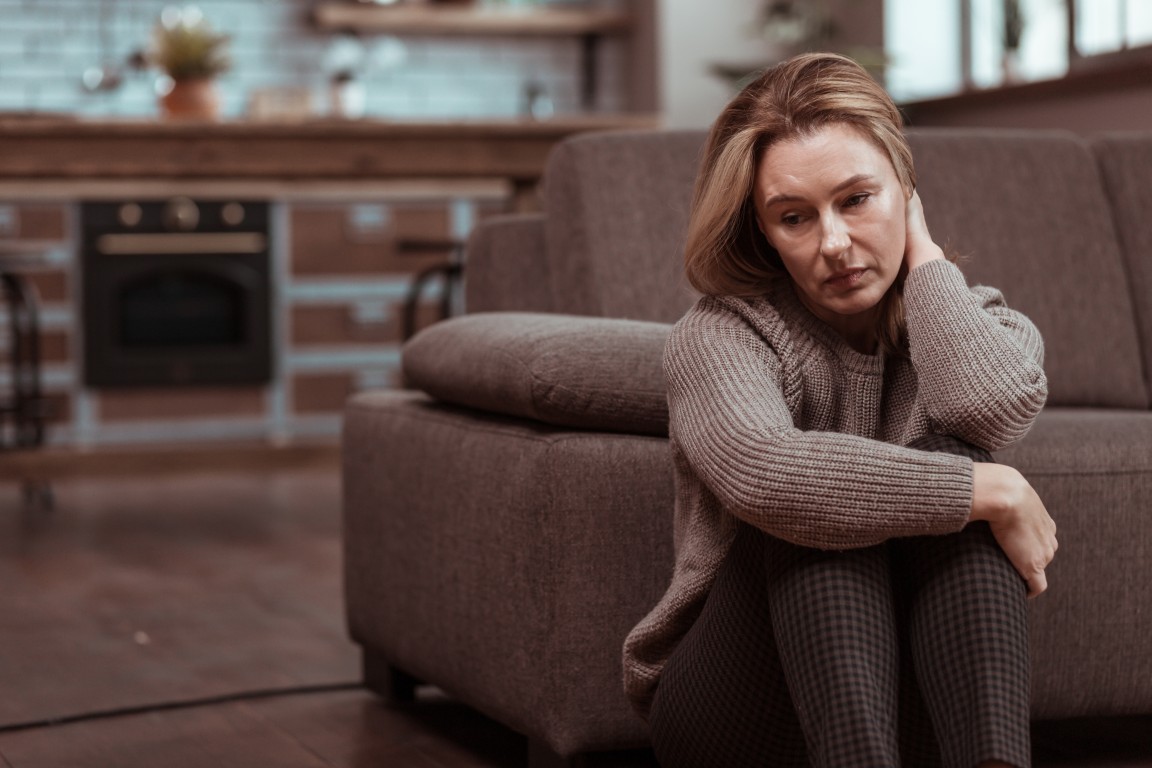According to the Anxiety and Depression Association of America, 6.8 million Americans battle anxiety. Unfortunately, less than 50% of those dealing with anxiety receive medical care for their illness. If you are dealing with anxiety, please, seek the medical attention of a healthcare professional. However, there are also some steps you can take in your daily life to help calm your nerves during particularly stressful moments where you feel like your anxiety is overtaking you.
It may seem counterintuitive but putting physical stress on your body has been proven to help alleviate mental and emotional stress that you’re experiencing. According to scientists, people who regularly exercise experience anxiety less frequently than people who are largely inactive. Cortisol, which is a stress hormone lessens when you exercise. That’s because exercise releases endorphins into the same area of the brain. Endorphins are naturally occurring chemicals in the body that improve mood and act as the body’s natural pain killers. Additionally, working out can help you sleep better and increases your confidence, both of which have a natural impact on the amount of anxiety and stress that you feel.
The use of aromatherapy as a means of alleviating stress and anxiety dates back to 3500 B.C. Using essential oils or a scented candle has been proven to help calm feelings of stress and anxiety. There are multiple scents that have been proven to help with feelings of stress. Some of those scents include:
• Lavender
• Bergamot
• Roman chamomile
• Rose
• Vetiver
• Sandalwood
• Orange
• Orange blossom
• Geranium
• Neroli
There are others but starting with one of those ten options can put you on the path of embracing the use of aromatherapy to help combat overwhelming stress and anxiety.
Reducing Your Amount of Caffeine
Many of us need a cup of coffee every morning to get ourselves in gear for the day ahead. However, caffeine, a stimulant found in coffee, tea, colas, chocolate and energy drinks. However, since caffeine is a stimulant, it has the potential to make you feel more high-strung than you already are. That means that if you’re already feeling some levels of stress and anxiety, too much caffeine can magnify those feelings.
This doesn’t mean that you have to totally eliminate caffeine from your day. Instead, if you find yourself feeling overly stressed out and anxious, consider taking in less caffeine for a day or two to reduce the amount of stimulation your brain is receiving.
Journaling Your Thoughts and Feelings
Some experts say that journaling can help you better sort out your thoughts which is often difficult to do during extreme moments of stress and anxiety. Journaling doesn’t have to be an overly detailed version of everything that’s going on in your day. Instead, it can provide an outlet for you to sort out your thoughts and emotions. If you’re facing extreme periods of anxiety, it can be difficult to calm your mind enough to form a coherent thought. This inability to think rationally often makes things worse, as you’re fighting against your own mind to form cohesive thoughts to try to talk yourself down.
Journaling can work in different ways. If you’re feeling stressed about something that hasn’t happened yet, consider writing down the issue at hand and the different possible outcomes. This can help you sort out your fears and hopes and think through the possibility of each. Additionally, you can journal the things in your life that you’re thankful for. When you shift your attention from what’s going wrong in your life to the things that you have going well, you can calm feelings of anxiety and think about how fortunate you are in other areas. This doesn’t mean that you don’t have issues or that your stressors are somehow less significant. Instead, it simply allows you to shift your focus onto something more positive.
Spending Free Time with Family and Friends
Having a good social circle is one of the most effective tools to battle stress and anxiety. A good group of supportive people who can help cheer you up when you’re feeling down, share in your successes and commiserate with you in your shortcomings can help keep you mentally and emotionally stable.
Again, this method is not based on assumption. There are scientific studies that back it up. For instance, once study shows that women who spend a considerable amount of time with female friends experience a higher level of oxytocin, a naturally occurring stress reliever in the brain. Additionally, another study showed that both men and women who claim to have very few social connections report higher levels of stress, anxiety and depression. Being connected with other people is a natural need for humans.
Learning to Say No
In many cases, we add more stress to our own lives through agreeing to do everything that is asked of us. We’re afraid to say no to an extra project at work because we fear that we may be passed over for a promotion in the future for a job that isn’t even open yet. We accept invites to every social gathering, even when we’ve worked extra hours and are tired because we don’t want friends to think that we don’t care. We fear being excluded from future events, so we agree to be everywhere that we’re invited, often to our own detriment.
It seems as though saying no to some social gatherings flies in the face of our previous tip, but everything is about finding the right balance for you. Yes, you need to be socially connected to other people. However, you also need to set your own boundaries. Trying to be everywhere and trying to do everything will often leave you feeling more overwhelmed and anxious than you were before. Before you agree to do anything, take some time to think about how it’s going to impact your mental health. Consider how much time you have and prioritize your own well-being.
Breathing Exercises
When faced with a stressful or anxiety-inducing situation, our mind often goes into what we refer to as “fight or flight” mode. However, breathing exercises can activate your body’s parasympathetic nervous system, which activates a relaxation response. There are several types of breathing exercises and you can find out more about them through a simple Google search.
The goal of all deep breathing exercises is to focus your attention onto your breathing. Breathing is a natural response that requires no thought. However, when you take extremely deep breaths in through the nose and out through the mouth, it takes much more thought. This allows you to shift your focus and recalibrate your mind.
These stress-relieving tips are no substitute for medical care that patients who suffer from anxiety need. However, when used in conjunction with professional medical help, these tips can help calm the mind and help you combat stress.






